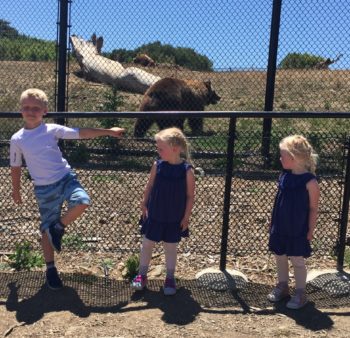 Summer Play Options for Kids
Summer Play Options for Kids
It’s summertime and our children are excited about laying around and relaxing for endless days. They may run outside and ride their bikes, garden, or explore creeks and nature. Or they may glue themselves to television reruns and computer screens. Each summer, parents struggle with ensuring that their children have sufficient stimulation without getting lost watching television shows or playing computer games. Other parents struggle with overscheduling their children to participate in various camps. This ensures that children have proper supervision while parents are gone from home with jobs and family obligations.
15 Summer Activities
As parents juggle their lives to support their families, here are 15 types of summer activities you and your child can select to ensure that they are stimulated, learning, and still not overscheduled:
- Parks and recreation departments offer a variety of programs that can include one hour to full day classes and camps in sports, art projects, and various recreational activities. Kids can also intern by helping adults in younger age programs. Middle school students can learn CPR and basic babysitting skills. Others can participate as teacher helpers in preschool activities.
- There are a variety of science and technology (STEM or STEAM) programs offered at local colleges and through various nonprofit organizations. Students can learn how to code, create Lego types of projects, and invent new contraptions that provide a specific service.
- Local school districts provide summer school remedial and enrichment programs that reinforce literacy and mathematical skill development.
- Community based organizations provide weekly summer day camps centered around local themes and conclude with a weekly field trip to an activity that reinforces them. For example, students may learn about the skills required to ride and maintain their bicycles. Then on Friday, they may take a 10-mile bike ride at a recreational area.
- Local churches convene summer bible schools where students learn more about their religion while socializing and playing with other children and friends in their church community.
- Art schools host intensive summer art camps where students learn to draw, paint, create modeling clay creatures, and nature collages.
- Sporting camps are abundantly offered through colleges, community-based organizations, and park programs.
- Sewing shops sponsor sewing summer programs where children learn how to use a sewing machine while designing and sewing a dress, doll clothes, or a creative product.
- Computer camps teach children how to use their computer with various computer applications. Kids can learn how to design an Excel spreadsheet, create directories, use math applications, research topics of interest, or learn word processing. Kids can create graphics for cards, newsletters, or business cards.
- Creative writing classes are offered at local colleges and community-based agencies for kids of all ages. They can learn how to write and self-publish books or submit a book proposal to a publisher.
- Students can apply for internships to explore future careers.
- Community-based organizations offer internships for students to assist in various community events including beach and waterway clean-up days, running events, homeless shelter meal and clothing distributions, and computer application projects.
- Students can learn how to write resumes sponsored by various organizations to support them in applying for jobs and internships.
- Children can create resumes promoting services that they would like to provide their neighbors. These may include serving as a mother’s helper, a babysitter, a gardener, a senior companion, or animal sitter. They can provide vacation support services, or collect recycling materials.
- Field trips can be organized by meeting with the parents of your child’s friends. Each family can host various play date events throughout the summer with a specific theme. Trips can focus on a sport, art activity, science exploration, or with a social-studies focus at a local museum. Children can learn financial literacy by balancing a checkbook. They can organize family photos or research your family’s ancestorial history.
Sharing Treasured Experiences and Memories
In the comments section below, share some of your most cherished summer activities with parents and teachers. Much success and serenity as you and your child identify a summer filled with playful moments of treasured experiences and memories.

Mary Ann Burke, Ed.D., Digital Education Expert, is a substitute distance learning teacher for Oak Grove School District in San Jose, California and the author of STUDENT-ENGAGED ASSESSMENT: Strategies to Empower All Learners (Rowman & Littlefield: 2020). Dr. Burke creates digital language arts and substitute teaching K – 12 activities for teachers and parents. She is the Cofounder of the Genparenting.com blog. Burke is the former Director II of Categorical & Special Projects for the Santa Clara County Office of Education that supports 31 school districts serving 272,321 students in Santa Clara County. She is also a previous Director – State & Federal Compliance for Oakland Unified School District, the former Director – Grantwriter for the Compton Unified School District, and was the initial VISTA Director for the Community Partnership Coalition in southern California. Much of her work focuses on creating innovative digital trainings and partnership programs for teachers and families to support students’ learning. These programs were featured as a best practice at a National Title I Conference, California’s Title I Conferences, AERA Conferences, an ASCD Conference, the NASSP Conference, and statewide educator conferences.

